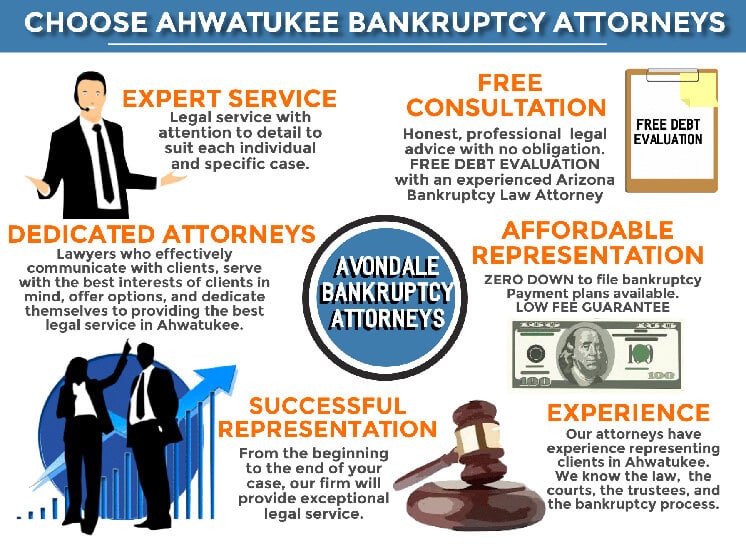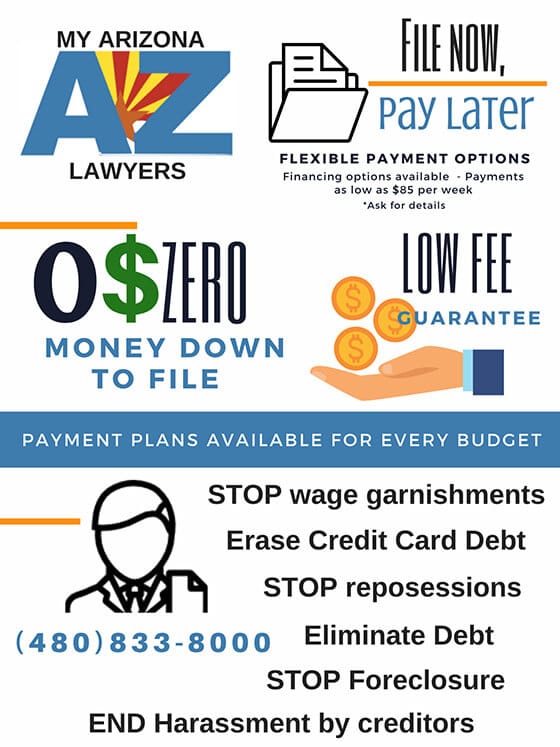Ahwatukee, Arizona Bankruptcy Attorneys
Chapter 7 Bankruptcy ATTORNEYS IN Ahwatukee
Our Ahwatukee Chapter 7 bankruptcy lawyers can provide financial freedom by experienced and professional legal assistance. When you’re life is affected in every way by debt and debt stress, you may consider Chapter 7 bankruptcy as the lifeline you need. Filing a Chapter 7 bankruptcy is an option to eliminate unsecured debts and begin a bright financial future with a “Fresh Start”.
Ahwatukee Chapter 13 Bankruptcy ATTORNEYS
The Ahwatukee Chapter 13 bankruptcy attorneys at our debt-relief law firm understand that good people of Ahwatukee need financial help at times. What you might not know, however, is that, even when experiencing crushing debt, there are options. Allow our Arizona bankruptcy legal team assist you and help you understand the Chapter 13 bankruptcy process.
Ahwatukee ZERO DOWN ($0) TO FILE Bankruptcy
$0 down bankruptcy program allows Ahwatukee residents needing to file bankruptcy to achieve debt relief. Financial freedom may become a reality for those who cannot fund the legal fees up front. File bankruptcy with our Ahwatukee Bankruptcy Attorneys with no money down. Ahwatukee clients also take advantage of our free consultations and debt evaluation, either in office or by phone.

How Can Bankruptcy Help Me?
An experienced lawyer will apply the Bk rules of both Chapter 7 and Chapter 13 bankruptcies to your particular situation. Therefore, your bankruptcy attorney after looking at your specific situation determines which option may be better for you. Whereas, a Chapter 7 bankruptcy in Ahwatukee is a “fresh start”, where 100% of your unsecured nonpriority debt is discharged. Whereas, a Chapter 13 bankruptcy (also called a Wage Earner’s Bankruptcy) helps you reorganize your debts, including tax debt and student loans. Additionally, declaring bankruptcy in Ahwatukee can also help you end lawsuits, wage garnishments, repossessions, and judgment liens.

AHWATUKEE, ARIZONA ATTORNEYS ANSER FREQUENTLY ASKED BANKRUPTCY QUESTIONS
AHWATUKEE, ARIZONA ZERO DOWN BANKRUPTCY ATTORNEY









